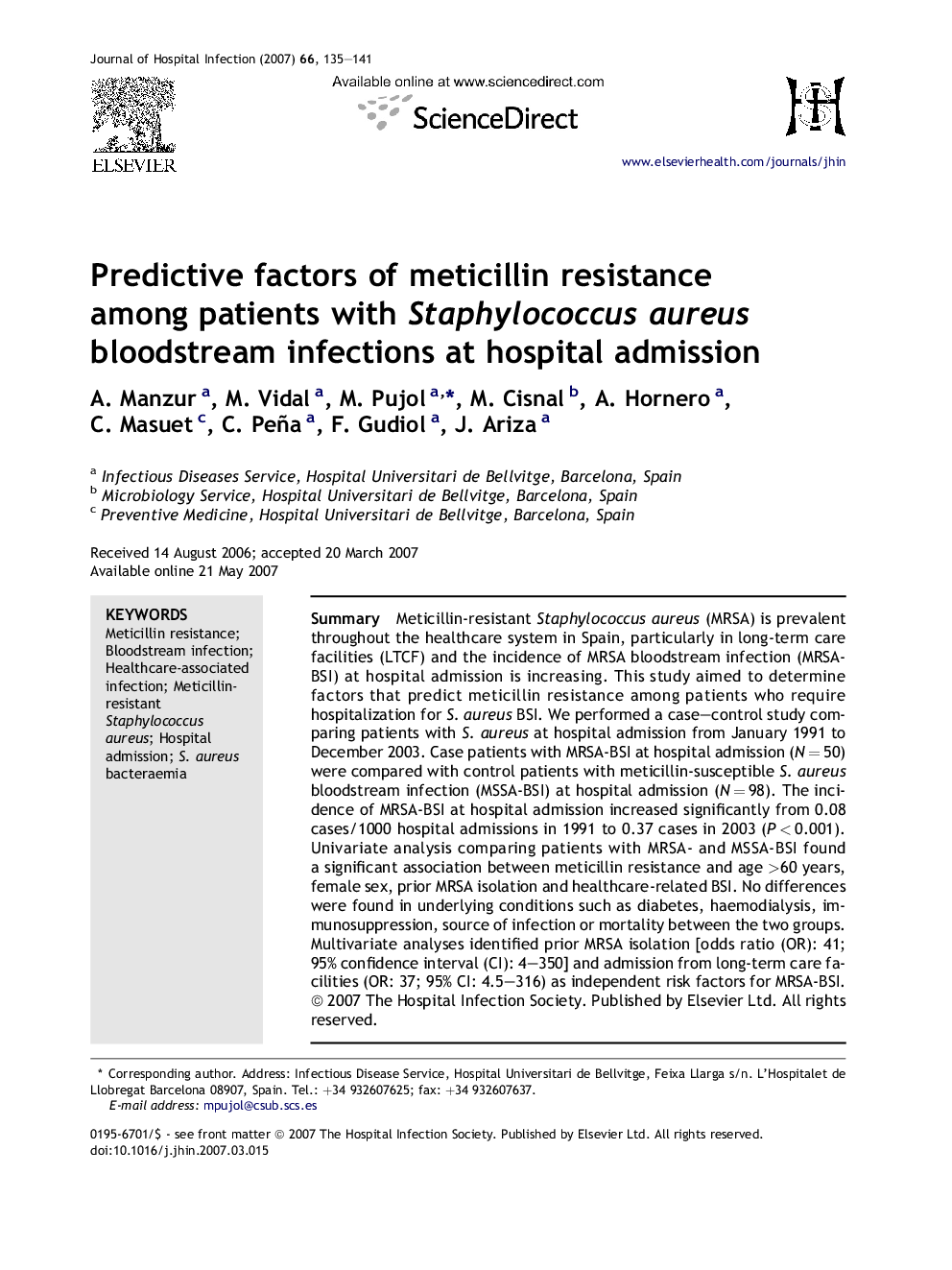| Article ID | Journal | Published Year | Pages | File Type |
|---|---|---|---|---|
| 3373628 | Journal of Hospital Infection | 2007 | 7 Pages |
SummaryMeticillin-resistant Staphylococcus aureus (MRSA) is prevalent throughout the healthcare system in Spain, particularly in long-term care facilities (LTCF) and the incidence of MRSA bloodstream infection (MRSA-BSI) at hospital admission is increasing. This study aimed to determine factors that predict meticillin resistance among patients who require hospitalization for S. aureus BSI. We performed a case–control study comparing patients with S. aureus at hospital admission from January 1991 to December 2003. Case patients with MRSA-BSI at hospital admission (N = 50) were compared with control patients with meticillin-susceptible S. aureus bloodstream infection (MSSA-BSI) at hospital admission (N = 98). The incidence of MRSA-BSI at hospital admission increased significantly from 0.08 cases/1000 hospital admissions in 1991 to 0.37 cases in 2003 (P < 0.001). Univariate analysis comparing patients with MRSA- and MSSA-BSI found a significant association between meticillin resistance and age >60 years, female sex, prior MRSA isolation and healthcare-related BSI. No differences were found in underlying conditions such as diabetes, haemodialysis, immunosuppression, source of infection or mortality between the two groups. Multivariate analyses identified prior MRSA isolation [odds ratio (OR): 41; 95% confidence interval (CI): 4–350] and admission from long-term care facilities (OR: 37; 95% CI: 4.5–316) as independent risk factors for MRSA-BSI.
